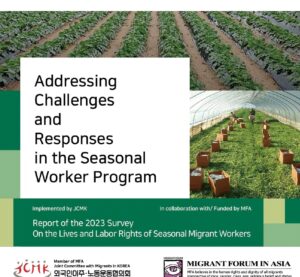Philippines: Aquino signs ILO convention to protect domestic workers’ rights
— May 31, 201231 May 2012
MANILA, Philippines – Good news for domestic workers. President Benigno Aquino III has signed the International Labor Organization (ILO) Convention 189 on Decent Work for Domestic Workers, while the House of Representatives passed on second reading the Kasambahay Bill or the National Domestic Workers Bill.
Labor Secretary Rosalinda Baldoz told migrant rights advocates comprising the Consultative Council on OFWs that the President signed the convention that seeks to protect and promote the rights of domestic workers on May 18, or eight days following the transmittal of the ratification instrument from the foreign affairs department. On the same day, Executive Secretary Paquito Ochoa transmitted the treaty to Senate President Juan Ponce-Enrile for the required two-thirds concurrence of the Senate.
These pieces of information were conveyed to InterAksyon.com by Ellene Sana, executive director of the Center for Migrants Advocacy, and confirmed by Philippine Overseas Employment Administration chief Hans Cacdac.
Following the President’s transmittal of the convention to the Senate, the Senate Committee on Foreign Relations should conduct ratification hearings on it, in preparation to concurring or rejecting the convention.
“The committee is chaired by Sen. Loren Legarda. We must act fast if we want the Philippines to be the second state party of the ILO to ratify the convention, next to Uruguay, (although Uruguay has not deposited yet the ratification instrument with the ILO) … The convention requires at least two ratifications to enter into force,” Sana said.
“Let us all communicate and appeal to Senator Legarda and her committee to include the ratification hearings on Convention 189 in the last three committee hearings next week on Monday, Tuesday, and Wednesday,” Sana said in an e-mail to fellow migrant rights advocates. InterAksyon.com was copy-furnished in the e-mail.
Congress will adjourn sine die from June 8 until July 22.
On the Kasambahay Bill, Sana said it is expected to be adopted on third and final reading at the Lower House on Monday. She said the bicameral conference committee that will harmonize the versions of the House and the Senate is expected either on June 5 or 6.
“Happily, the House version is quite close to the provisions of Convention 189,” Sana said.
The new ILO standards set out that domestic workers around the world, who take care of families and households, must enjoy the same basic labor rights as those available to other workers: reasonable hours of work; weekly rest of at least 24 consecutive hours; a limit on in-kind payment; clear information on terms and conditions of employment, as well as respect for fundamental principles and rights at work including freedom of association and the right to collective bargaining.
Recent ILO estimates, based on national surveys and/or censuses of 117 countries, place the number of domestic workers at around 53 million. However, experts say that due to the fact that this kind of work is often hidden and unregistered, the total number of domestic workers could be as high as 100 million. In developing countries, they make up at least 4 to 12 percent of wage employment. Around 83 percent of these workers are women or girls and many are migrant workers.
The convention defines domestic work as work performed in or for a household or households. While the new instrument covers all domestic workers, they provide for special measures to protect those workers who, because of their young age or nationality or live-in status, may be exposed to additional risks relative to their peers, among others.







